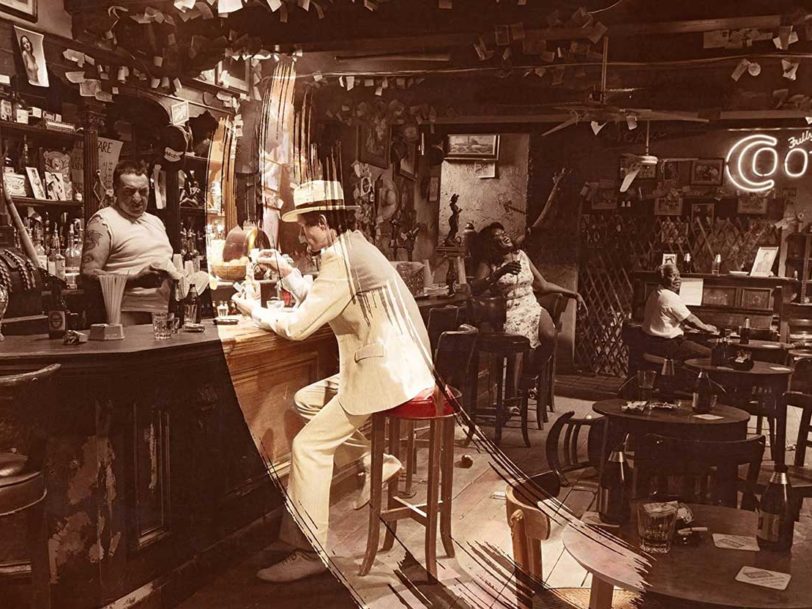The old adage “the higher you fly, the further you fall” is often applied to Led Zeppelin’s career. Indeed, most retrospectives focus on their imperial period, from their self-titled debut album through to 1975’s Physical Graffiti, and overlook albums such as Presence and In Through The Out Door, despite the latter finding the group bowing out – unintentionally – with a record that more than holds its own against other hard rock releases of the late 70s.
Listen to ‘In Through The Out Door’ here.
“We were left quite alone”
It’s worth remembering that In Through The Out Door came at a time when punk rock had tried to unseat the likes of Led Zeppelin – and yet it still managed to top both the US and UK charts on release, showing that the band continued to pack a mighty punch at the close of the decade they had dominated.
Certainly, punk’s establishment-baiting, back-to-basics rock didn’t help Led Zeppelin’s cause, but when In Through The Out Door first appeared, on 15 August 1979, it also came up against early releases by the newly emerging New Wave Of British Heavy Metal bands such as Def Leppard and Iron Maiden – hungry young homegrown rock acts who had set their sights on stealing Led Zeppelin’s crown.
It’s a testament to Led Zeppelin’s collective resolve that they were still capable of making compelling new music at a time when they were at their lowest ebb. Guitarist Jimmy Page and drummer John Bonham were struggling with drug- and alcohol-related issues, and, worst of all, frontman Robert Plant’s five-year-old son Karac had died suddenly of a respiratory infection during the summer of 1977. Understandably, the singer was devastated and withdrew into his family, leaving open the question of whether Led Zeppelin would (or even could) continue.
“We tended to get on with it”
Fortunately for the band, multi-instrumentalist John Paul Jones took the creative charge during this precarious period, so when Led Zeppelin finally reconvened, in November 1978, they discovered they had a decent backlog of material to knock into shape. As it turned out, Plant’s return to the band was also partly brokered by his friendship with Jones, and the duo’s creative nexus drove the albums sessions forward.
“It just seemed that Robert and I got to rehearsals first and we basically wrote the album, just the two of us,” Jones told Australian music journalist Ritchie Yorke in 1991. “We were left alone quite a lot of the time, along with John [Bonham], so we tended to get on with it, I think. I suppose you could say that In Through The Out Door is my album, the way Presence was Jimmy’s album.”




